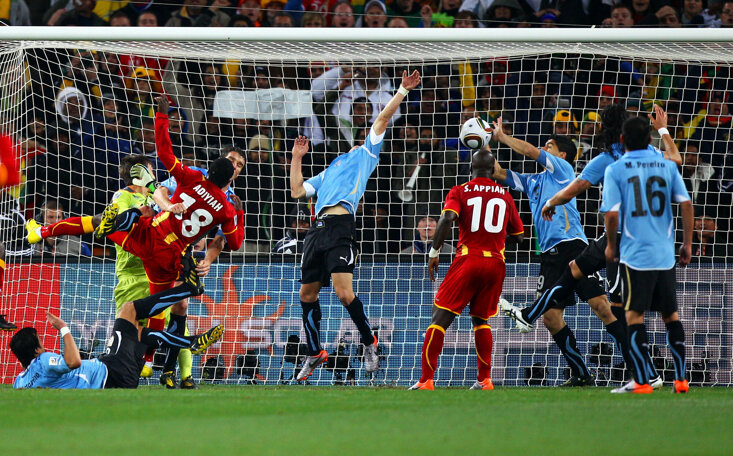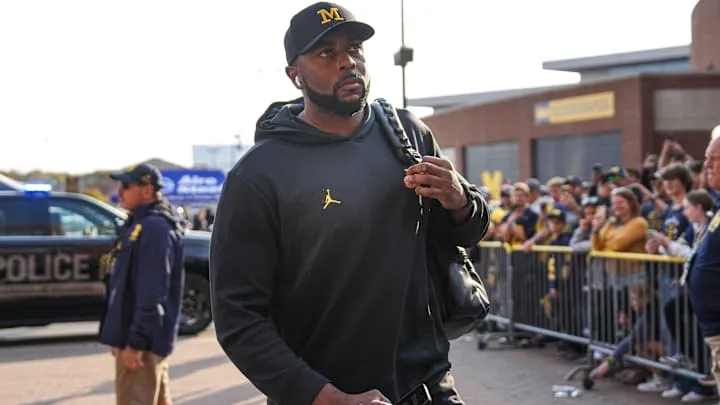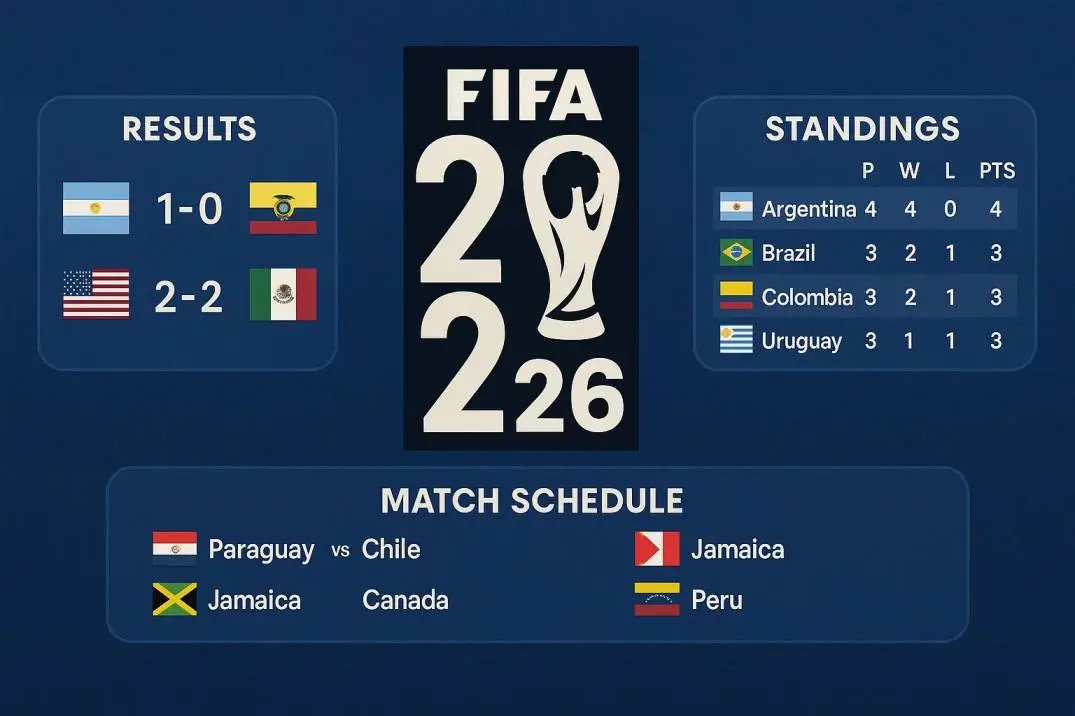
SOME OF THE WORLD CUP MATCHES ARE REMEMBERED FOR ALL THE WRONG REASONS
There have been many great moments and memorable moments during the World Cup, as well as great goals and iconic players. Nevertheless, as we approach the dawn of another tournament, let us instead take a look back at some of the most controversial and popular matches this wonderful event has brought to us over the years.
France vs Italy (1938)
A number of factors influenced the 1938 World Cup, among them the Spanish Civil War, Nazi Germany's annexation of Austria, Mussolini's Italy's rebellious actions, and Uruguay's boycott. At the height of World War II, when fascism was spreading across Europe, France hosted the World Cup. When Italy faced the hosts, in blue, in the quarterfinals, it was widely expected that they would wear their white away kit. Mussolini instructed them to wear black shirts as a symbol of Italian fascism. The players saluted fascistically before kickoff, just one year before the outbreak of World War II. For the first time, the hosts (France) and title holders (Italy) qualified automatically.
Chile vs Italy (1962)
In the second group stage of the 1962 World Cup, Chile and Italy met each other for the first time. A similar battle was fought 44 years before the Battle of Nuremberg, in which they went at it in a similar manner. It was at that moment that tensions were high in Santiago after two high-profile Italian journalists had referred to the city - which had experienced the world's largest earthquake just prior to the tournament - as a "dumping ground" - and the battle played out on the pitch. Honorino Landa was sent off after 12 minutes of the game after he was shown a red card after which he was escorted off by police. Following that, there were several scraps between the players, with each side throwing punches at the other. The game was characterized by scuffles and broken noses throughout, and Chile ultimately won the match by a score of 2-0.
Argentina (1978)
It was a World Cup hosted under terrible circumstances. During the two years prior to the tournament, Isabel Peron was overthrown by a right-wing military coup. General Jorge Rafaél Videla, Argentina's military leader between 1976 and 1981, imposed a vicious, bloody, and brutal regime known as the Dirty War. More than 30,000 people were kidnapped, tortured, and murdered by the regime as it sought to silence its liberal opposition. It is noteworthy that one of these concentration camps was located just one mile from River Plate's Monumental Stadium, where rape, the removal of teeth and fingernails, burning with water, oil, or acid, prolonged immersion in water, and castration were all methods of torture employed. This regime, in the midst of all of this, was able to demonstrate its strength and positivity through the World Cup.
West Germany vs France (1982)
As two of the best teams in the world collided in the 1982 World Cup semi-final, another collision is remembered. A pass by Michel Platini was assisted by Patrick Battiston, who was taken out by the German goalkeeper Harald Schumacher. Upon hitting the deck, he was knocked out and left lying on the deck for seven minutes before a stretcher and oxygen were brought on board. As a result, he lost two teeth and broke a rib. As a matter of fact, the referee only gave a goal-kick and West Germany went on to win the match on penalties.
South Korea (2002)
Referees consider this World Cup to be the most infamous of the entire collection. Host nations have always been encouraged to do well, and during the knockout stages, the officials made it clear that South Korea was desperate to advance. Against Italy in the round of 16, the referee dismissed Francesco Totti for diving and disallowed a seemingly perfect goal before the hosts advanced with a golden goal. As South Korea won on penalties in the quarter-final against Spain, there were several questionable offside calls and two further goals that were ruled out. It was the only blemish on an otherwise fantastic World Cup in Asia.
Croatia vs Australia (2006)
In There were only two games refereed by English referee Graham Poll in 2006. Referee Graham Poll issued three yellow cards to Croatian Josip "imuni" before sending him off in Croatia vs. Australia. During the 61st minute, Imuni was shown a yellow card for a foul on Harry Kewell. Poll again showed Imuni a yellow card in the 90th minute for a foul, but he did not follow it up with a mandatory red card. After Poll blew the final whistle in the 93rd minute, Imuni approached Poll angrily and pushed him. In addition to issuing him a third yellow card, Poll also issued a red card to Imuni. It was also questioned why Poll's assistants Phil Sharp and Glenn Turner, as well as fourth official Kevin Stott, failed to realize the mistake. After the incident, Poll denied any blame should be placed on the other officials and stated, "I was the referee, it was my mistake, and the buck stops with me.".
Portugal vs The Netherlands (2006)
It is a sign of a great World Cup match when it has its own Wikipedia page. It was expected that the last 16 matches between Portugal and the Netherlands would be one of the most exciting games of the tournament, but rather it turned into chaos. Four red cards, 16 yellow cards, and Cristiano Ronaldo's substitution were all part of a match in which both teams kicked the living daylights out of one another. Deco and Giovanni van Bronckhorst were sent off just before the second half and are still remembered fondly today as they discussed their offensive strategies while sitting on the sidelines.
Uruguay vs Ghana (2010)
The whole footballing world was outraged in 2010 when Luis Suarez used two hands to attack Giorgio Chiellini. He denied a certain goal with his mitts in the final seconds of Uruguay's quarter-final match against Ghana, and although he was given a penalty and sent off, he would be the one to take home the medals. Watching Asomoah Gyan shoot his penalty over and celebrating wildly by the tunnel, he looked like a maniacal genius. In the penalty shootout, his team won, making all of his evil work worthwhile.
By Rashmi Goel







